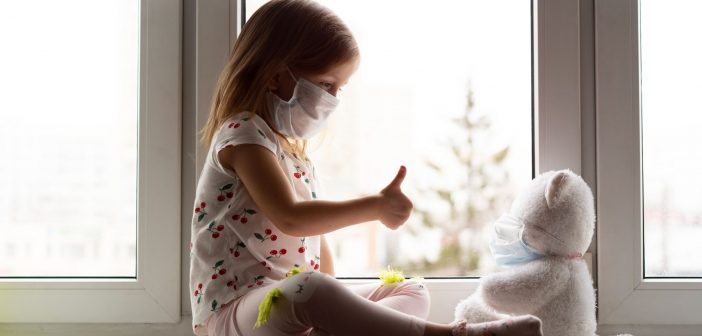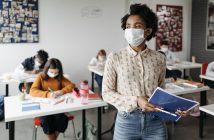When news broke the morning of Dec 30 that a 4-year-old child tested positive with a mild case, one of the questions that haunt parents’ nightmares came roaring back into WeChat groups: can one parent stay with the child while they receive care? Can parents visit their child at all while in isolation for COVID-19?
The answer is no and has been for almost the year since COVID-19 was still called coronavirus. In an effort not to cross-contaminate, children and adults are cared for in purpose-built isolation booths by hospital staff, and parents are not allowed inside their room, if into the hospital at all. This appears not to be a COVID-specific policy but one for any child who enters intensive care.
Beijing mom He Siyu experienced this policy in 2019 shortly after giving birth to twins. She was transferred to Huaxin Hospital, a public hospital, in Jiuxianqiao and recalled: “When one of my kids who was in an incubator in the hospital (because his weight was too low), none of us could see him, we had to freeze the breast milk and send it to the hospital every two days.”
When parents started testing positive in the early stages of the outbreak in Wuhan and it became clear that someone needed to watch the children of those quarantined and under care in the hospitals, volunteers stayed with the children, some of whom had never slept alone before, to take care of their basic needs and also emotional ones.
But who cares for the children in the hospital undergoing care alone, some of whom are too young to understand what’s happening and why their parents can’t be there? Patients receive 24-hour care from the nurses and hospital staff, and one recent notice of an 8-month-old who is being treated for COVID-19 says that she is being kept in isolation. During the height of the crisis last winter, I heard of some families who could send an iPad or laptop for older kids to use for video chats. Still, that kind of communication is not as easy for younger children to master, and certainly not babies or toddlers. It’s important to note that this is not limited to Chinese citizens; expats do not get special treatment, no matter in a private or a public hospital.
Even as we waited for my children’s school-mandated test results to be emailed this weekend, I quietly packed a backpack for both of them with instructions on using the electronics I sent for both playing games and calling us. I included a fluffy and some small favorite things of theirs to keep for comfort. I even discussed it with them ahead of time, that if they test negative, then life goes on as normal. If they test positive, they will need to go to the hospital, and we can’t visit. It was a long conversation about why that was, and luckily they’ve spent enough time talking about “The Big Germ” and taking precautions that they mostly understand at ages four and six.
I don’t think we need to tell our beijingkids readers how traumatic it is for children to be separated from their parents. We’ve all seen the tears and breakdowns at school drop-offs, and that’s going into a nurturing and socialized environment, not into a hospital for treatment in nearly complete isolation from anyone who has cared for you before.
This is yet another reason to take the precautions laid out before us seriously and not wait for infections to be found in our compound or neighborhood to take our own precautions. Be patient with schools as they work with government officials to make the best decisions for our community. Kids do get infected, as the recent case with an 8-month-old reminds us. Even though there is an excellent recovery rate here in Beijing, their hospital experience could have longer-lasting emotional effects than any parent wants to imagine.
KEEP READING: Some Shunyi International Schools Move to Online Learning For Lower Years
Photos: Canva




